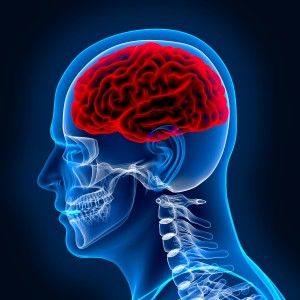Whiplash & Head Injury
Whiplash Can Cause Head Injury
One of the more overlooked injuries associated with the whiplash type injury is Mild Traumatic Brain Injury (MTBI) or in layman’s terms, concussion.
The MTBI does not require a direct blow to the head nor a loss of consciousness. The American Congress of Rehabilitation Medicine defines MTBI as follows:
“A patient with mild traumatic brain injury is a person who has had a traumatically induced physiological disruption of brain function, as manifested by at least one of the following:
- any period of loss of consciousness;
- any loss of memory for events immediately before or after the accident;
- any alteration in mental state at the time of the accident (e.g. feeling dazed, disoriented, or confused); and
- focal neurological deficit(s) that may or may not be transient;”
The mechanism of injury producing a MTBI can include direct head trauma or an acceleration/deceleration (whiplash) movement causing a shaking of the brain. It is the rapid movement and striking of the brain against the skull wall that produces injury.
“In most instances, neurological dysfunction in head injuries is caused by acceleration or deceleration of the brain rather than by the impact itself (Ommaya, & Hersh, 1971). Rotational forces may cause the most significant injuries through shearing of axons. This may explain why injuries with the head free (such as automobile accidents).”
Symptoms of MTBI can fall into three categories and are listed as follows:
- Physical symptoms – nausea, vomiting, dizziness, headache, blurred vision, sleep disturbance, quickness to fatigue, lethargy, or other sensory loss.
- Cognitive deficits – involving attention, concentration, perception, memory, speech/language, or executive functions.
- Behavioral change(s) – irritability, quickness to anger, disinhibition,
To evaluate and document MTBI, when indicated by history, symptoms and exam, our assessment of the injured patient includes: the Center For Disease Control’s ACE or Acute Concussion Evaluation, The Rivermead Post Concussion Survey, and Epworth Sleepiness Scale. These allow us to determine the severity injury and determine the necessary care.
MTBI is common injury associated with auto collisions and should be assessed when patients are complaining of the common symptoms. In our office we thoroughly evaluate every patient involved in an auto collision for concussion or MTBI. Proper diagnosis, documentation and treatment are key to optimum recovery.
If you have been in an auto accident and are experiencing any of the above symptoms, call our office at (314) 731-4383, ask for Dr. Martin to schedule and evaluation today!
